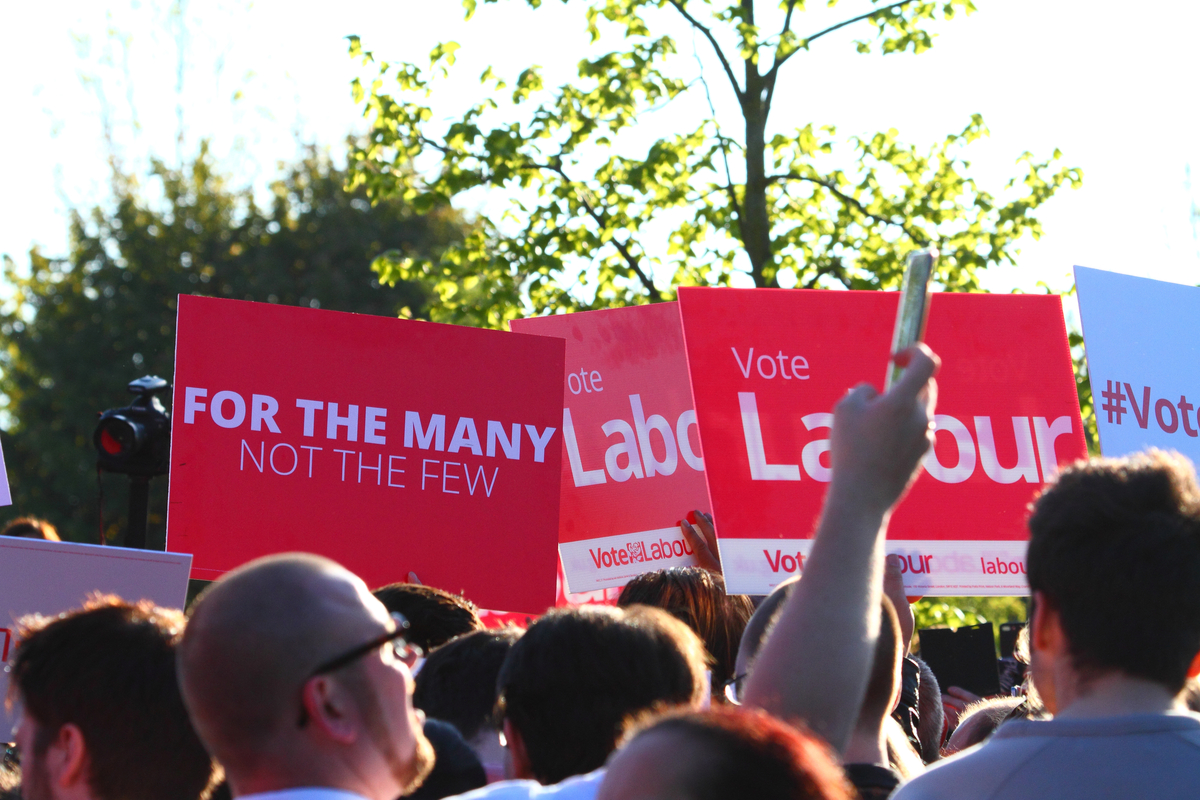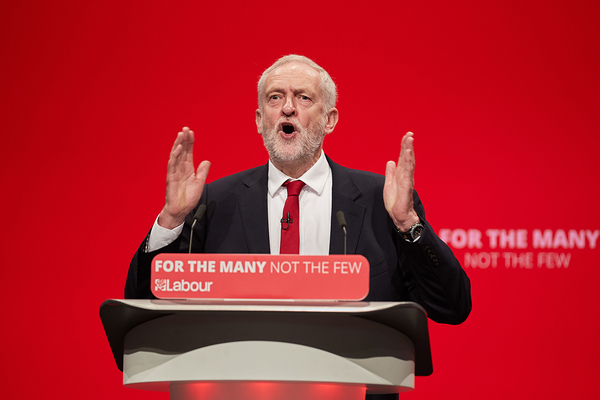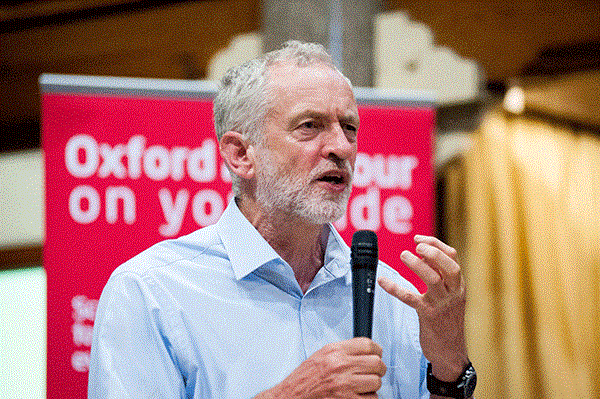You are viewing 1 of your 1 free articles
 Jules Birch
Jules BirchLabour’s plans are a powerful statement, but will they work?
Jeremy Corbyn’s party has outlined the most comprehensive plan for affordable housing for decades, but it is facing some tricky questions, writes Jules Birch
The green paper published by Labour on Thursday represents the most comprehensive plan for affordable housing put forward in England in 40 years.
The document launched by Jeremy Corbyn and John Healey does not just reject the market-based and Conservative-led polices of the last eight years, it also goes significantly further than the policies adopted by the last Labour government and in some ways even beyond what the party proposed at the last election.
In a broad outline, it is an attempt to reclaim the word ‘affordable’ and spell out what housing "for the many" would mean.
And it explicitly rejects the current government’s claim that the only way to make housing affordable is to build as many new homes as possible:
"Conservative housing policy is the wrong answer, to the wrong question. It is not just how many new homes we build, but what we build and who for that counts. We have to build more affordable homes to make homes more affordable."
That may sound obvious but if you look at an article this week, by Nick Clegg’s director of policy under the coalition, you can see what a break it represents with the thinking even in the Lib Dem part of the coalition, let alone the Tory one.
“Labour’s plan is an attempt to reclaim the word ‘affordable’.”
By contrast, Labour makes a powerful restatement of ’why affordable housing matters’ to home building, living standards, mixed communities, stability and security, value for money, creating jobs and making work pay.
The party pledges 100,000 "genuinely affordable" homes a year by the end of its first five-year term and a million over 10 years.
The majority of them would be for social rent but the Corbynite slogan of "for the many" is taken in a Bevanite context of ’the living tapestry of a mixed community’ to mean not just housing for "the very poorest and most vulnerable" but also "for people priced out by the falling housing market".
The programme would be made up of social rent, plus living rent and low-cost home ownership, including FirstBuy discounted homes.
“Affordable rent, fixed-term council tenancies, the bedroom tax, starter homes and forced sales of council homes would all be stopped and the Right to Buy would be suspended.”
The living rent and home ownership elements would have to meet a new affordability standard that rents or mortgage payments should be no more than a third of local incomes.
Conservative policies like: affordable rent, fixed-term council tenancies, the bedroom tax, starter homes and forced sales of council homes would all be stopped and the Right to Buy would be suspended. Labour says this would prevent the loss of up to 53,000 genuinely affordable homes a year.
Some of this is radical in the current context – 100,000 a year has not been achieved since the pre-Thatcher days of 1978 – and draws on the best recent work by thinktanks and housing organisations over the last few years.
An English Sovereign Land Trust would work with local authorities to enable more proactive buying of land at a price close to existing use values, along with possible changes to the rules on compensating landowners, while Labour would stop the ‘fire sale’ of public land to the highest bidder.
Local authorities would get their borrowing caps raised to prudential levels, with a review of the way this borrowing is recorded in the national accounts, plus potential kickstarting of new building by returning, in full, the previous year’s capital receipts from Right to Buy sales and backing for local housing companies.
Intriguingly, there would also be help for the half of councils that have done stock transfer to set up a housing revenue account and enabling grant to get them building again.
However, much of it draws on what is already happening in Scotland and Wales and in Labour-run local government in England, with the vital difference of sympathetic voices at the Treasury and Department of Work and Pensions as well as Labour’s proposed new department to "put housing at the heart of government".
And some of it, arguably, builds on policies seen since 2010 by adding that vital link with incomes rather than market prices – for example FirstBuy sounds a lot like starter homes, except that buyers do not get to keep the discount.
“Much of it draws on what is already happening in Scotland and Wales.”
The big difference that I can see between the green paper and what Labour proposed at the last election is the result of the consultation conducted since the Grenfell Tower fire.
Most directly, sprinkler systems would be fitted in all existing high-rise residential blocks, with a £1bn fund to help councils and housing associations, and consideration of a loan fund for private landlords.
Labour would establish a ‘publicly accountable’ systems of building control and fire safety inspection and trust that the Hackitt review’s conclusions will be "sufficiently strong to overhaul building safety".
The fire safety measures would be part of a new fire safety standard in a new Decent Homes programme that would also tackle the half a million existing social homes that are non-decent and quarter of a million that are unfit.
“Labour also fires a shot across the bows of the more commercially minded associations.”
Tenants would get back an independent national organisation and get a new commissioner to give them a stronger voice in national policy debates.
There would also be a new repair standard with rights of redress for tenants and Labour would also consult on a proposal to give housing associations a new duty to have tenant representatives on their boards.
If that last bit raises a few eyebrows among housing association executives, it’s seen as part of making them "more accountable to the communities they serve".
Labour also fires a shot across the bows of the more commercially minded associations by saying it wants to "protect the distinctive social mission of housing associations which all staff share but which has been put under pressure by government policy since 2010" and ban for-profit associations.
However, associations will be reassured by proposals on grant, a 10-year rent settlement and measures to reduce the cost of borrowing and they say Labour has listened to the sector.
It all sounds great but can it work?
The first big challenge is obviously for Labour to get elected – and even I’m not sure what happens, English votes for English laws if it wins but does not have a majority in England.
A Labour government with a radical programme would potentially have to withstand an assault by financial markets and fierce competition for funding between different departments.
Assuming all that, the green paper is adamant that 100,000 genuinely affordable homes a year can be achieved, pointing out that the last Labour government got to 60,000 in the teeth of a global recession and that grant would be reset to the £4bn level it was at then.
“A Labour government would potentially have to withstand an assault by financial markets."
The challenges then become all about the detail. What happens, for example, if interest rates rise and it becomes much more challenging to deliver low-cost home ownership at a third of local incomes?
What happens if a downturn in the housing market leads to competing demands for help for home owners and a collapse in housebuilding for the market as in 2008?
(It is interesting that the green paper does not mention the pledge at the last election to extend Help to Buy until 2027 – though that may just be because it is focussed on social housing.)
Do local authorities really have the resources and the capacity to play such a leading role in delivery after eight years of austerity?
And what happens when social landlords faced with Decent Homes 2 conclude that, just as in Decent Homes 1, it will be cheaper to demolish failing stock than bring it up to standard?
Will those homes be replaced, and will those replacements count as new homes, or will they simply be lost to social housing as between 1997 and 2017?
Those are just a few of the tricky questions that a Labour government would face on housing – but getting to the stage where they need to be asked at all will be progress in itself.
What will the Conservatives’ social housing green paper have to say in response?
Jules Birch, award-winning blogger
At a glance: Labour’s social housing proposals
- Scrap the affordable rent product and introduce new income-linked rents
- Introduce a new “Decent Homes 2” target for social landlords to improve fire safety post-Grenfell
- Make housing associations subject to the Freedom of Information Act
- Prohibit for-profit housing associations
- Set a new target of one million new affordable homes over 10 years, mostly at social rent
- Impose a new duty to deliver affordable homes on councils, introducing a new needs assessment and an affordable new homes bonus
- Establish a new English Sovereign Land Trust to help councils acquire land more cheaply.
- Form a new national tenants’ organisation and commissioner
- A “longer-term aim” for half of all new homes to be “genuinely affordable”
- Give housing associations access to Public Works Loan Board finance
- Consider returning in full the Treasury’s previous year’s share of Right to Buy receipts
- Introduce a planning “presumption” that all developments, including rural and smaller sites, will include affordable housing
- Help councils with no stock to start a Housing Revenue Account
- Fast-track Karen Buck’s Homes (Fitness for Habitation) bill
- Consult on requiring landlords to publish an annual “outsourcing statement”
- Consult on housing associations to be required to have tenants on their boards













